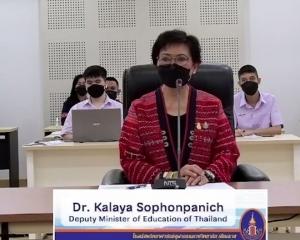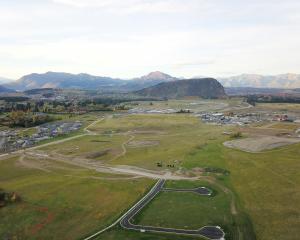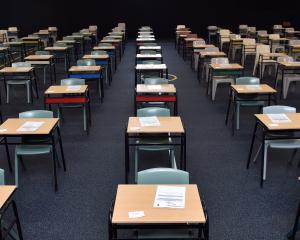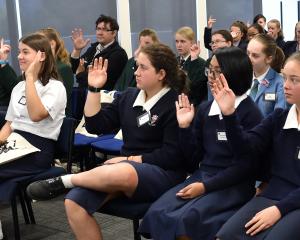
National standards were launched by Mrs Tolley and Prime Minister John Key yesterday, and will come into effect in English-medium primary and intermediate schools next year.
Mrs Tolley said the standards set clear expectations which pupils would need to meet in reading, writing, and mathematics in their first eight years at school.
Schools will be expected to give reports to parents twice a year on how their children are progressing and the standards will help teachers and parents identify those children who need extra help.
"If [pupils] have these foundation skills in literacy and numeracy, they will be able to learn across all areas of the school curriculum, and will be on track to get at least NCEA level 2," she said.
The ministry's 2008 national school-leavers report showed nearly one in five of last year's 53,059 school-leavers left without level one NCEA.
Of those, one in three did not gain level two.
About 43% of school-leavers gained university entrance, which was on a par with the 42.3% of Otago year 13 school-leavers who left with university entrance.
Mrs Tolley said national standards would lift achievement levels in those pupils most at risk of leaving without NCEA qualifications in the future.
"Students who aren't progressing will be identified early and given the help they need to catch up."
The standards focus on detailed areas teachers would be expected to test pupils against at each school level.
For example, after one year at school, pupils should be able to read The Way it Was by Dot Meharry.
They would then be expected to answer questions from the teacher and provide additional information on the story, such as the use of different colours in the illustrations or the way time difference was depicted.
Pupils would not be compared with others - assessment would measure only their progress and achievement against the national standards.
Schools will have to start reporting to the ministry on the standards in 2012.
However, Otago Primary Principals Association president and Green Island School principal Steve Hayward was pessimistic about the standards.
"The evidence from experiences overseas indicates this is going to be a huge step back in time for us. I have no confidence at all that this is going to solve the problem.
"The Government has already said more than three-quarters of schools are already testing student achievement against rigorous respected standards."
Mr Hayward said he would be taking some time to work out how the new standards would apply to the teaching practice and how it would fit in to the New Zealand curriculum.
"We need to see how we're going to do this and still meet the requirements."











